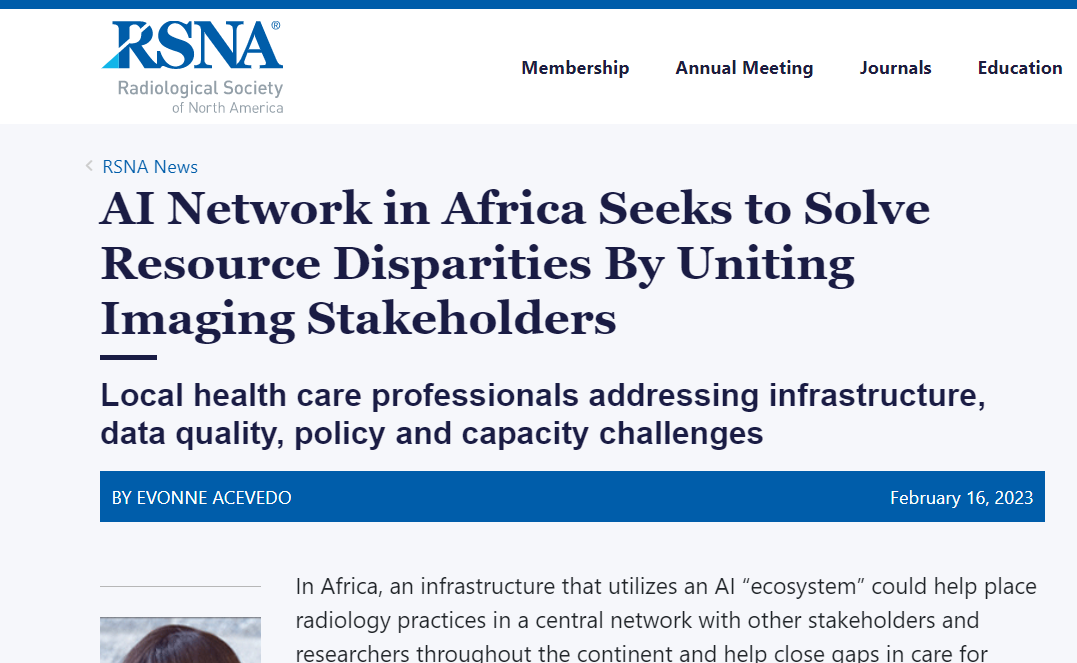https://www.rsna.org/news/2023/february/solving-ai-disparities-in-africa
BY EVONNE ACEVEDO on February 16, 2023
In Africa, an infrastructure that utilizes an AI “ecosystem” could help place radiology practices in a central network with other stakeholders and researchers throughout the continent and help close gaps in care for underserved patients.
But what if technology can’t get to those populations or doesn’t work when it gets there?
Factors like infrequent scanner maintenance, network connectivity hiccups and unreliable power sources make it challenging to apply AI in a clinical setting in resource-constrained countries. High staff turnover and overworked personnel, sporadic access to contrast materials and a general lack of clinical imaging protocols create a recipe for ambiguity and uncertainty.
“All of these factors result in lower quality and less breadth of data for developing high-value imaging innovations,” according to Udunna Anazodo, PhD, assistant professor of neurology and neurosurgery at the Montreal Neurological Institute at McGill University, Quebec, and coauthor of the Radiology: Artificial Intelligence editorial, “AI for Population and Global Health in Radiology.” “More importantly, the lack of national data policy and regulatory frameworks make adoption of routine AI imaging solutions by and large unattainable in Africa.”


Leave a Reply